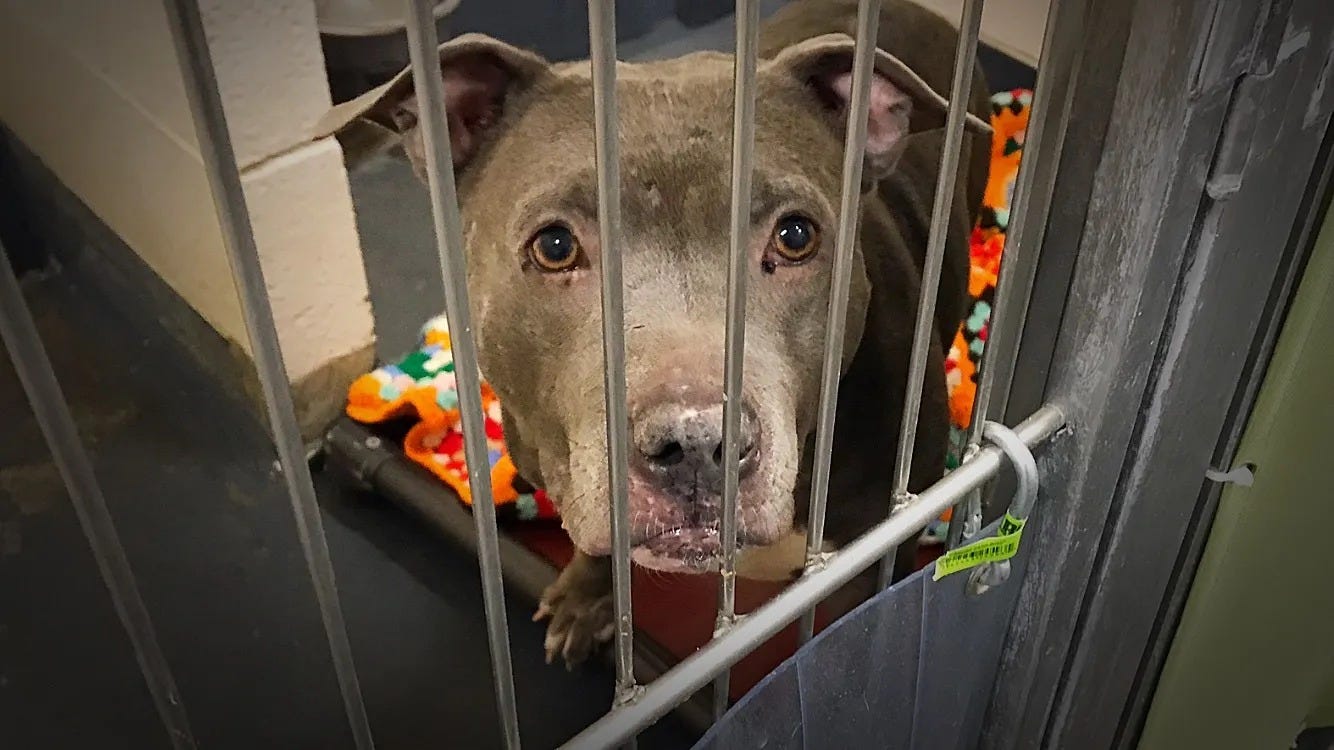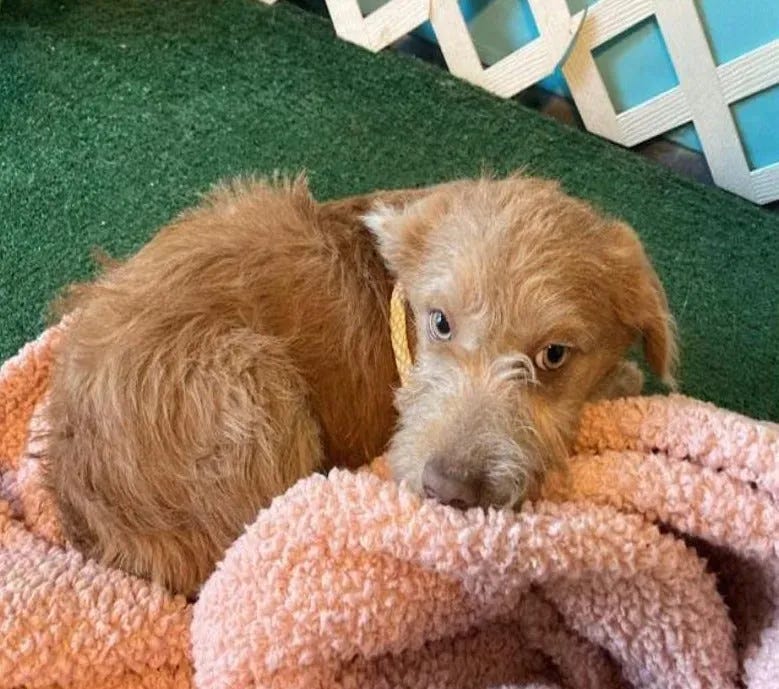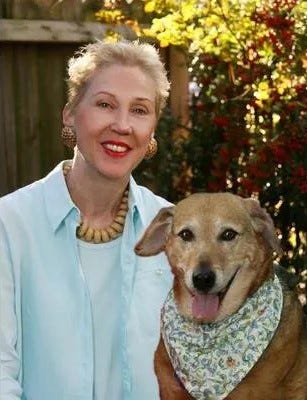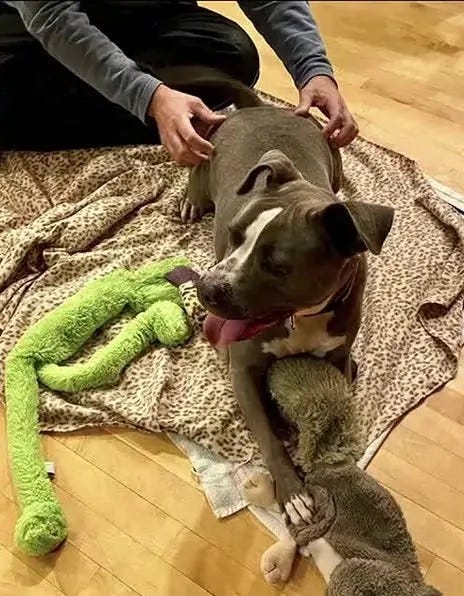Best Friends honors pound that kills animals by gas chamber
News and headlines for November 4 - November 11, 2023
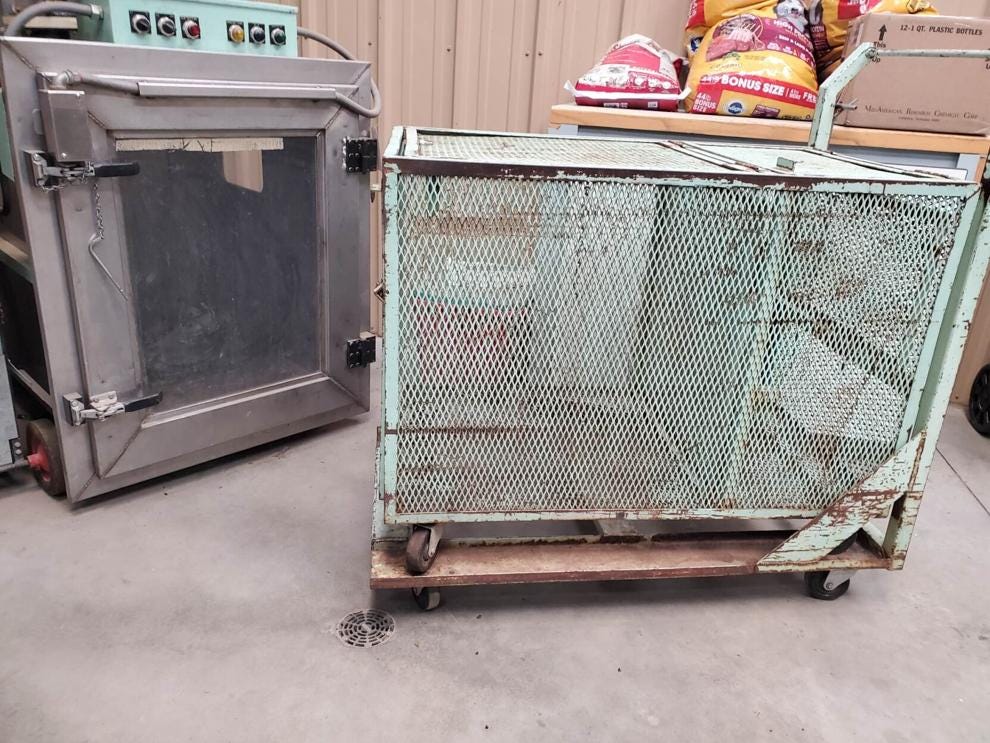
These are some of the stories making headlines in animal protection:
Two volunteers have filed a lawsuit against Indianapolis Animal Care Services (IACS), the city’s municipal pound, for violating their First Amendment rights. IACS management threatened to fire them if they continued to publicly share their concerns about substandard care and high rates of killing. Even though intake has fallen by over 40%, IACS is on pace for its worst placement rate in a decade, according to critics of the pound.
To “express their opinions about the dire state of the shelter operated by IACS,” the two volunteers were among nearly 100 “past or present employees and volunteers of IACS” who “signed a letter concerning the crisis at IACS.” The pound’s deputy director claimed that “criticizing” the shelter violated “the shelter’s Volunteer Code of Conduct and its Social Media Policy.”
Volunteers, rescuers, and shelter reformers not only have a First Amendment right to speak out against government policies with which they disagree, but they also have a constitutionally protected right to demand that the government correct the identified wrongs. As the U.S. Supreme Court has consistently ruled, “speech on public issues occupies the ‘highest rung of the hierarchy of First Amendment values’ and is entitled to special protection.” Connick v. Myers, 461 U.S. 138, 145 (1983). Indeed, such speech lies “at the heart of the First Amendment’s protection.” First Nat’l Bank of Bos. v. Bellotti, 435 U.S. 765, 776 (1978).
When animal lives are at stake — as they are when animals enter a shelter that has not fully embraced a culture of lifesaving — threatening volunteers who speak out is even more egregious given the life and death consequences.
Thankfully, the First Amendment gives rescuers, volunteers, and No Kill advocates the right to criticize the shelter without being banned. It gives them the right to complain to city and county officials without being fired as a volunteer or rescuer partner. It gives them the right to take and publicize photographs of conditions at the shelter without being evicted from the premises. And it forbids shelters from forcing them to sign, as a condition of volunteering or rescuing, a “non-disclosure” agreement or “Code of Conduct” that prevents them from posting criticism the shelter deems “disparaging.” Animal lovers do not surrender their constitutional rights at the shelter door.
IACS is no stranger to illegal conduct. The deplorable state of the pound, gross mismanagement by city officials, and neglect and abuse of animals go back decades. In 2009, the then-director had his car window smashed, dog food smeared on his car, and was threatened with physical violence by pound staff for his relentless focus on high-quality care and adoptions because it increased their workload. It was so much easier just to kill them than care for them — and apparently, it still is.
The Complaint in Elaine Thiel and Mianna Ruiz v. City of Indianapolis is here.
Know your rights by clicking here.
The No Kill Advocacy Center filed an amicus letter in opposition to the County of Los Angeles’ Petition asking the California Supreme Court to allow it to kill dogs despite non-profit rescue organizations ready, able, and willing to save them.
In a lawsuit by rescuers against the Los Angeles County Department of Animal Care & Control, the Court of Appeal unanimously ruled that California shelters cannot kill dogs rescue groups are willing to save “based upon its determination that the animal has a behavioral problem or is not adoptable or treatable.”
But Los Angeles County is asking the state’s highest court to overturn that ruling by fear-mongering that unless it does so, dangerous dogs will “threaten [the] life, health, and safety of humans and fellow animals.”
It is a lie. Not only are dangerous and vicious dogs exempt from rescue, but as I explain to the Justices in the amicus letter I wrote for The No Kill Advocacy Center, shelters are not competent to make determinations that a dog is “unadoptable” and ought not to be trusted with the power to do so.
Read the amicus letter by clicking here.
The animals of Virginia lost a great friend with Debra Griggs’ passing. In addition to rescuing dogs, she was a tireless advocate for animal rights. Despite all her many accomplishments, of which there were many, one of her greatest achievements was getting Loudon County, VA, to rescind its breed ban, allowing dogs who have done nothing wrong to be adopted out for the first time in 50 years.
Neighbors are demanding answers after a Wisconsin shelter that claims to be No Kill killed a dog for “behavior” reasons who was friendly and well-behaved.


